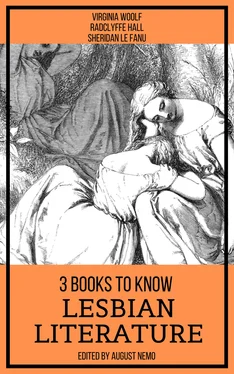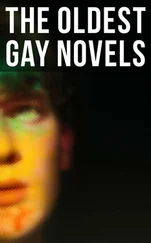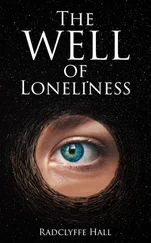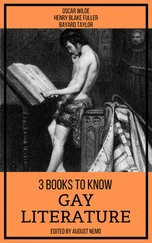1 ...8 9 10 12 13 14 ...42 But if sleep it was, of what nature, we can scarcely refrain from asking, are such sleeps as these? Are they remedial measures—trances in which the most galling memories, events that seem likely to cripple life for ever, are brushed with a dark wing which rubs their harshness off and gilds them, even the ugliest and basest, with a lustre, an incandescence? Has the finger of death to be laid on the tumult of life from time to time lest it rend us asunder? Are we so made that we have to take death in small doses daily or we could not go on with the business of living? And then what strange powers are these that penetrate our most secret ways and change our most treasured possessions without our willing it? Had Orlando, worn out by the extremity of his suffering, died for a week, and then come to life again? And if so, of what nature is death and of what nature life? Having waited well over half an hour for an answer to these questions, and none coming, let us get on with the story.
Now Orlando gave himself up to a life of extreme solitude. His disgrace at Court and the violence of his grief were partly the reason of it, but as he made no effort to defend himself and seldom invited anyone to visit him (though he had many friends who would willingly have done so) it appeared as if to be alone in the great house of his fathers suited his temper. Solitude was his choice. How he spent his time, nobody quite knew. The servants, of whom he kept a full retinue, though much of their business was to dust empty rooms and to smooth the coverlets of beds that were never slept in, watched, in the dark of the evening, as they sat over their cakes and ale, a light passing along the galleries, through the banqueting-halls, up the staircase, into the bedrooms, and knew that their master was perambulating the house alone. None dared follow him, for the house was haunted by a great variety of ghosts, and the extent of it made it easy to lose one's way and either fall down some hidden staircase or open a door which, should the wind blow it to, would shut upon one for ever—accidents of no uncommon occurrence, as the frequent discovery of the skeletons of men and animals in attitudes of great agony made evident. Then the light would be lost altogether, and Mrs Grimsditch, the housekeeper, would say to Mr Dupper, the chaplain, how she hoped his Lordship had not met with some bad accident. Mr Dupper would opine that his Lordship was on his knees, no doubt, among the tombs of his ancestors in the Chapel, which was in the Billiard Table Court, half a mile away on the south side. For he had sins on his conscience, Mr Dupper was afraid; upon which Mrs Grimsditch would retort, rather sharply, that so had most of us; and Mrs Stewkley and Mrs Field and old Nurse Carpenter would all raise their voices in his Lordship's praise; and the grooms and the stewards would swear that it was a thousand pities to see so fine a nobleman moping about the house when he might be hunting the fox or chasing the deer; and even the little laundry maids and scullery maids, the Judys and the Faiths, who were handing round the tankards and cakes, would pipe up their testimony to his Lordship's gallantry; for never was there a kinder gentleman, or one more free with those little pieces of silver which serve to buy a knot of ribbon or put a posy in one's hair; until even the Blackamoor whom they called Grace Robinson by way of making a Christian woman of her, understood what they were at, and agreed that his Lordship was a handsome, pleasant, darling gentleman in the only way she could, that is to say by showing all her teeth at once in a broad grin. In short, all his serving men and women held him in high respect, and cursed the foreign Princess (but they called her by a coarser name than that) who had brought him to this pass.
But though it was probably cowardice, or love of hot ale, that led Mr Dupper to imagine his Lordship safe among the tombs so that he need not go in search of him, it may well have been that Mr Dupper was right. Orlando now took a strange delight in thoughts of death and decay, and, after pacing the long galleries and ballrooms with a taper in his hand, looking at picture after picture as if he sought the likeness of somebody whom he could not find, would mount into the family pew and sit for hours watching the banners stir and the moonlight waver with a bat or death's head moth to keep him company. Even this was not enough for him, but he must descend into the crypt where his ancestors lay, coffin piled upon coffin, for ten generations together. The place was so seldom visited that the rats made free with the lead work, and now a thigh bone would catch at his cloak as he passed, or he would crack the skull of some old Sir Malise as it rolled beneath his foot. It was a ghastly sepulchre; dug deep beneath the foundations of the house as if the first Lord of the family, who had come from France with the Conqueror, had wished to testify how all pomp is built upon corruption; how the skeleton lies beneath the flesh: how we that dance and sing above must lie below; how the crimson velvet turns to dust; how the ring (here Orlando, stooping his lantern, would pick up a gold circle lacking a stone, that had rolled into a corner) loses its ruby and the eye which was so lustrous shines no more. 'Nothing remains of all these Princes', Orlando would say, indulging in some pardonable exaggeration of their rank, 'except one digit,' and he would take a skeleton hand in his and bend the joints this way and that. 'Whose hand was it?' he went on to ask. 'The right or the left? The hand of man or woman, of age or youth? Had it urged the war horse, or plied the needle? Had it plucked the rose, or grasped cold steel? Had it—' but here either his invention failed him or, what is more likely, provided him with so many instances of what a hand can do that he shrank, as his wont was, from the cardinal labour of composition, which is excision, and he put it with the other bones, thinking how there was a writer called Thomas Browne, a Doctor of Norwich, whose writing upon such subjects took his fancy amazingly.
So, taking his lantern and seeing that the bones were in order, for though romantic, he was singularly methodical and detested nothing so much as a ball of string on the floor, let alone the skull of an ancestor, he returned to that curious, moody pacing down the galleries, looking for something among the pictures, which was interrupted at length by a veritable spasm of sobbing, at the sight of a Dutch snow scene by an unknown artist. Then it seemed to him that life was not worth living any more. Forgetting the bones of his ancestors and how life is founded on a grave, he stood there shaken with sobs, all for the desire of a woman in Russian trousers, with slanting eyes, a pouting mouth and pearls about her neck. She had gone. She had left him. He was never to see her again. And so he sobbed. And so he found his way back to his own rooms; and Mrs Grimsditch, seeing the light in the window, put the tankard from her lips and said Praise be to God, his Lordship was safe in his room again; for she had been thinking all this while that he was foully murdered.
Orlando now drew his chair up to the table; opened the works of Sir Thomas Browne and proceeded to investigate the delicate articulation of one of the doctor's longest and most marvellously contorted cogitations.
For though these are not matters on which a biographer can profitably enlarge it is plain enough to those who have done a reader's part in making up from bare hints dropped here and there the whole boundary and circumference of a living person; can hear in what we only whisper a living voice; can see, often when we say nothing about it, exactly what he looked like; know without a word to guide them precisely what he thought—and it is for readers such as these that we write—it is plain then to such a reader that Orlando was strangely compounded of many humours—of melancholy, of indolence, of passion, of love of solitude, to say nothing of all those contortions and subtleties of temper which were indicated on the first page, when he slashed at a dead nigger's head; cut it down; hung it chivalrously out of his reach again and then betook himself to the windowseat with a book. The taste for books was an early one. As a child he was sometimes found at midnight by a page still reading. They took his taper away, and he bred glow-worms to serve his purpose. They took the glow-worms away, and he almost burnt the house down with a tinder. To put it in a nutshell, leaving the novelist to smooth out the crumpled silk and all its implications, he was a nobleman afflicted with a love of literature. Many people of his time, still more of his rank, escaped the infection and were thus free to run or ride or make love at their own sweet will. But some were early infected by a germ said to be bred of the pollen of the asphodel and to be blown out of Greece and Italy, which was of so deadly a nature that it would shake the hand as it was raised to strike, and cloud the eye as it sought its prey, and make the tongue stammer as it declared its love. It was the fatal nature of this disease to substitute a phantom for reality, so that Orlando, to whom fortune had given every gift—plate, linen, houses, men-servants, carpets, beds in profusion—had only to open a book for the whole vast accumulation to turn to mist. The nine acres of stone which were his house vanished; one hundred and fifty indoor servants disappeared; his eighty riding horses became invisible; it would take too long to count the carpets, sofas, trappings, china, plate, cruets, chafing dishes and other movables often of beaten gold, which evaporated like so much sea mist under the miasma. So it was, and Orlando would sit by himself, reading, a naked man.
Читать дальше












